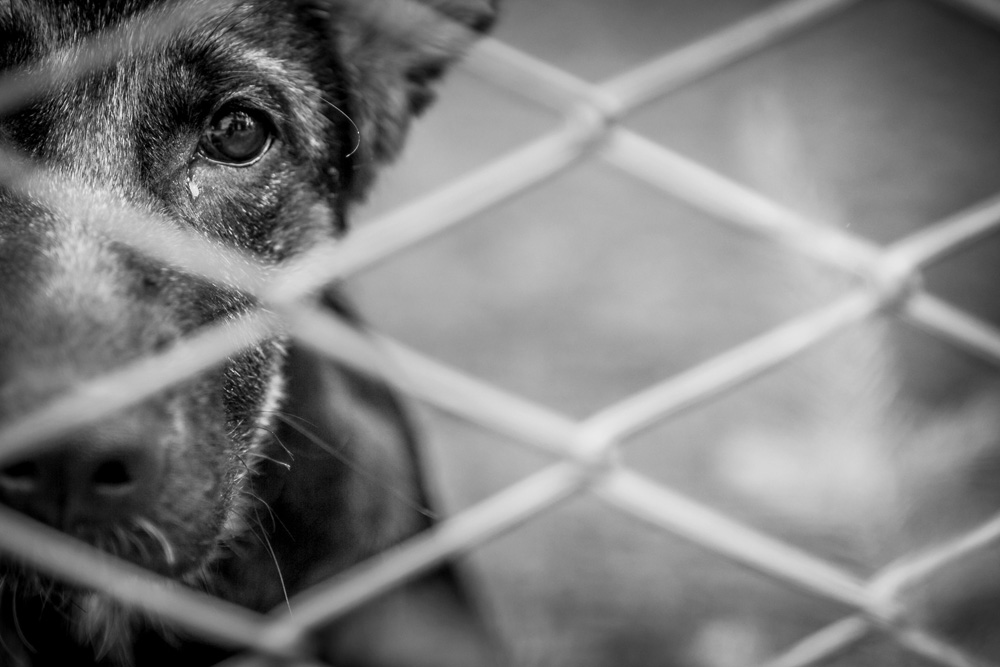Part 1.
Have you noticed that for just about everything there is a “National Day”?
There are a large number of not-for-profits, charities and organizations that need to have positive publicity and support in order to function and in my opinion, none are more deserving than the animal rescue organizations.
My first experience of an animal shelter was a visit to the Calgary Humane Society, www.calgaryhumane.ca , some twenty plus years ago. The result was Kali joining our family. She was a black and white lab crossed with something, roughly two years of age. She had been found wandering on a highway east of Chestermere. She wasn’t in great condition when found and had recently had pups of which there was no trace. A sad start in life for her, she definitely had issues and was wary of most people and other dogs. She got on okay with our other dog a schizu-bichon called Soda. What Kali needed most in her life was love and security.
Dogs find their way into shelters for a number of reasons, fortunately, not all as traumatic as Kali’s. People may have given up their dog for numerous reasons, emergency hospitalization, suddenly expected to be away from home for extended periods, moving out of country and I’ve heard sad stories from seniors who have gone to live in care homes where pets aren’t permitted and family members aren’t able to take them.
There are also a number of different kinds of shelters and rescue organizations, so how do you know where to start if you are considering finding your next family pet in one.
I asked some of the people I know who have rescued dogs. My daughter has rescued four dogs over a number of years, so asking her seemed like a good place to start.
“It’s important to adopt from a “real” rescue whenever possible because the fees you pay go back into helping more animals. Some organizations do a behavioural assessment as well as a physical assessment from a vet. They should provide both of those to the person considering the pet. All genuine rescues insist that if you can no longer care for the animal that you must return it to them. Meeting the whole family and any other pets in the family is a must and if the rescue doesn’t insist on this, I think that they should.
People need to realize that the animal no matter how young will likely have some sort of trauma or issue because the first part of its life may not have been easy. It is also possible that the dog will have been in a number of “safe environments” before reaching you, so it is going to take them at least a month before it is really comfortable with you and yet another new environment. Additional time should be expected if there has been trauma involving people. I completely think it (rescue) is the right thing to do.”
The 2020 statistics from Humane Canada stated reported information from 83 of the 174 shelters in Canada. “During the Covid-19 pandemic shelters have been affected in an unprecedented way. Many had to shut their doors to the public and find new ways to support their communities and animals in their care. Reducing human to human contact meant organizations shifted their services, for example by increasing the use of foster homes to keep animals out of a central shelter facility”.
As the result of the “new” model of animal rescue care, there has become a more community-centred approach. More volunteers are now offering to foster dogs their own homes before they find their forever homes.
My friend Tom had this to say about his experience with fostering: “In 2015 I became part of a local dachshund rescue group. I loved the breed, their tenacity and their loyalty, and also their stubborn hard to train and quirky side. I stepped into a board position nearly immediately and started the journey to rehome, rehabilitate and train these dogs to be a healthy addition into one’s home.
It wasn’t long before several dachshunds had been in my foster care, coming out of their shell and learning how to socialize, become friendly and do their business outside. I recall I had ten to twelve in the first twelve months of doing so. The gratification of giving to something without any monetary reward, without payment per say, and only the satisfaction of watching the rewards for another being, and seeing them go into a happy place to call home forever was amazing. I would even call it addicting! Over 140 dachshunds had come and gone through my home. 50 or so more got private guidance on the outside of that.” https://www.albertadachshundrescue.com
Let’s celebrate all of the people who care for these rescued dogs and who support the shelters and remember that shelter dogs too have so much love to give—and they won’t ever stop giving it to you once you let them into your heart!
Trivia Question: What is the dachshund’s country of origin?
The answer to last week’s question: The Cavalier King Charles Spaniel was named after the 17th Century King Charles 1st and they’ve survived a good deal longer than he did!






